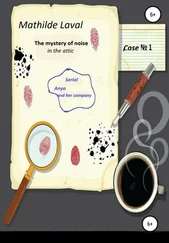The old woman was just visible in the moonlight, standing in a shallow corner. During the time since he first discovered her here, he had only seen her out during daylight. He couldn’t quite see her setup, but clearly the roof was crucial territory, and he was fairly sure she had supplies there, perhaps food. She had rarely come out at night—he’d only seen her do it twice before—and those were brief appearances, hardly visible as she scurried and stooped, gathered and retreated. Tonight, though—this was something new. Her hands moved in the air before her, as if conducting some strange music or making a painting.
He squatted in the scrub, well back in the trees, and watched. Talus leaned heavily into his thigh, dividing her attention between the old woman on the roof and the little feast of dead dog going on in the street. She made no sound, Talus, didn’t even pant. The upright points of her ears pricked forward each time various scavengers squabbled over the corpses. Other than that, she remained motionless. The young man, the one who had killed the wild dogs with a slingshot, was nowhere to be seen. In the attic, apparently.
Except for the rhythmic movement of her arms and hands, the old woman’s slender body was still and straight. Moonlight caught here and there on her profile and in the waves and curls of her hair, which fell past her waist. Earlier today there had been a lot of yowling and weeping from inside that house. A female voice. After all that, he hadn’t expected to see the old woman again.
But this afternoon she had appeared on the roof, ready to help the young man sling rocks. Watching her solitary habits all this time, he’d not imagined she might find an ally. A mean aim, that one. And a timely kill. The dogs now being picked over by night creatures had been pressing him for weeks, edging in on his camp. The wild ones were harder and harder to drive back lately. In their early days in the woods, he’d been able to let Talus go on the roam when they were out. No more of that now. She had learned quickly to shake her puppyish exuberance and stick by his flank. She understood the least twitch of his fingers and the minutest click of his tongue.
He watched the woman a few moments more. His place in the woods had suited for summer, but it wouldn’t work through winter. Too wet, and too many tracks closing in. Not just dog, either. A few days ago he found mountain lion prints just outside his perimeter line. The thought, sitting here in the dark, made him want to peer into the trees behind him, perhaps to see a pair of green eyes reflecting the moon. Something watching him watch the old woman.
If she could acquire one confederate, she might acquire more than one. Time was getting thin—he’d have to make a move, sooner rather than later.
The instant he stood upright, Talus rose too, seeming to intuit his intentions before he knew them himself. She turned toward camp, a full stride ahead, attentive but relaxed. She’d alert him to threat. His crawly sense of menace faded as he formulated a plan.
FOR THREE DAYS THEY STAYED PUT. Each time the old poultices came off Renna’s leg, the healing had advanced, and although she slept almost constantly, the fever had finally broken into sweats and passed. Arie and Handy went onto the roof only twice a day, once in the twilight of sunrise to empty the swill bucket and get fresh water, and again at sunset to collect what they needed from the garden boxes. Both of them did intermittent perimeter scans with the binoculars, but they saw nothing unexpected. Arie thought even the animals were particularly quiet, as though the killing of the wild dogs had dampened their usual vocal exuberance.
They kept watch in shifts. Handy insisted on going downstairs once each night for a quick look out the windows. “Someone could get close and us not know it,” he told her. “Better to take a look than not know.” She argued that she had managed quite well all this time by leaving the downstairs mostly to itself and not taking that risk, but he was immovable in his quiet way. It was clear that he wasn’t seeking her permission. They kept the doors downstairs blocked shut.
Arie and Handy were still out on the roof in the dim morning of the fourth day when Renna woke up. “Hello?” Her voice was scratchy and tentative, faint from down in the attic. “Who’s there?”
Arie was clearing the rough filter on the water collector. “Go down,” she told Handy. “Before she starts yelling.” She rapped the filter—layers of polyester batting held taut in the double ring of an old plastic embroidery hoop—against the edge of one garden box. The filter had collected the usual mass of leaf fragments, tiny pebbles, and random small insects from the gutters and roof runoff.
“Yeah, we don’t want her waking the neighbors at this hour,” Handy said. It was cold enough that his breath made pale steam when he spoke. He knelt over the rope ladder, checking for fraying or loose knots. Arie was continually surprised at the way he silently went about these sorts of tasks without prompting on her part, as if he could guess what needed tending to before she could mention it. At this remark, she glanced up. The first blue light in the east showed the tiny smirk on his face.
“What a relief,” she said. She fitted the filter back into place. “I’ve been holding my breath hoping a comedian would show up here.”
Handy took the larger container Arie had filled from the jerry can. “How’s the supply?”
“Fair,” she said. There had been another light rain shower, but the three of them were going through stored water even faster than she had expected. “There’s a barrel behind the house if push comes to shove.”
“Are you there?” Renna called again.
“Hold up, we’re coming,” Handy said. He maneuvered himself onto the ladder with the water container in one arm. Arie pulled a young dandelion out from among the beet greens and tucked it in her pocket to eat later. She took a last long look at the street and tree line, and followed Handy down.
Renna was propped on an elbow, squinting at the open sky panel. Her dark hair flared out around her head, despite the loose braid Arie had made of it.
“So, you’re awake,” Arie said. “Do you know us?”
“I think—” She squinted a bit, as if trying to recall a bit of historical trivia. Her eyes, huge in her gaunt face, wandered from Arie to Handy and back to Arie again. “You were in the woods,” she said to Handy. “On the night it rained, you helped me. And you were—” She blinked up at Arie. “You were mad at me?” She shook her head. “You hit me, right?”
“I did. To quiet you.”
“Okay,” she said, not seeming at all disturbed by the fact. “Can I have food?”
“Good you have an appetite,” Arie said. She stowed the water and flipped a tattered bath towel from the top of a plastic milk crate. The crate was full of apples, windfalls mostly, small and blemished. “I’ll mash you up a couple of these,” she told Renna. “It won’t be cooked sauce, but they’re good.” She tossed one to Handy. “Try that,” she said. “You might have to eat around a wormhole. Not fussy, are you?”
Handy took a tremendous bite out of it. “I’ve eaten a worm or two,” he said around a mouthful. He sat on the floor a couple of feet from Renna, facing sideways and sneaking surreptitious looks at her.
Arie brought the dish of pulverized fruit. “Looks to me like you can probably feed yourself today,” she said. “Let’s get you sitting up some. Handy, be handy and help me.” Renna laughed, a rusty sound, then put a hand over her mouth as though he might react badly. “Don’t fret,” Arie told her. “Like a lamb, this one.”
Читать дальше













